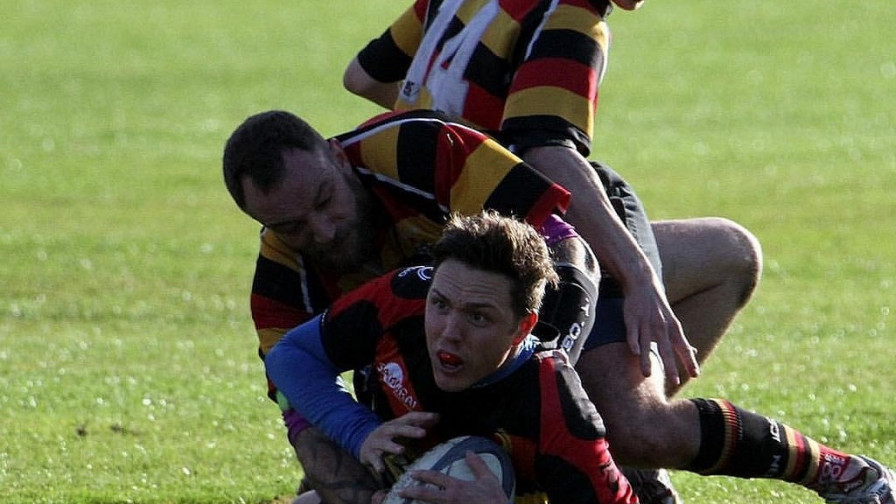
Spirit of Rugby
A project which targeted young people between the ages of 16 and 24 to inspire them to get involved in Rugby Union as players, volunteers, coaches, event managers or anything else.

The project in numbers
£696,165
Total Spirit grant
February 2015 – December 2017
Project duration
Rugby Football Union
Grantee organisation
This project, led Rugby Football Union, built on the inspiration of three major rugby events taking place in 2015 and 2016: the Rugby World Cup (hosted in England and Wales), the Rio 2016 Olympic Games (which included Rugby 7s for the first time) and the Rio 2016 Paralympic Games (which included Wheelchair Rugby). The RFU worked with community sports organisations in fifteen locations – 5 sites where World Cup matches were being played, 5 where there were training camps, and 5 that were not close to any World Cup activity.
Young volunteers and project staff in each area developed a mix of one-off events and regular activities to attract new participants into the game. Projects included: rugby ‘holiday camps’ for young people from low income background in East Birmingham, delivered by local charity FITCAP, mixed ability rugby sessions in Brighton and the establishment of a new LGBTQ+ inclusive team, the Liverpool Tritons.

Project aims
- Improve perceptions of rugby amongst young people who haven’t considered the sport
- Increase positive perceptions towards young people by providing them with leadership and volunteering roles within the project
- Increase the accessibility of rugby, and the awareness of rugby’s offer for disabled people.

Impact
Approximately 6,000 people took part in regular activity across the 15 projects, with a further 4000 taking part in one-off events and taster sessions. 215 regular volunteers developed and ran the activities.
Sheffield Hallam’s evaluation notes of one project location, “the key to [its] success lay in accepting that the key beneficiaries of the project were the volunteers who supported it, as much as the participants at the sessions which they provided”. This was an important theme across the projects. Of the 215 volunteers, 60 received formal training a part of Spirit of Rugby, and some had already gone on to paid employment in host organisations or the wider sporting sector.
“The majority of volunteers reported improved time management (70%), more creative thinking (68%), better planning and co-ordination (62%) and improved problem-solving abilities (57%) as a direct consequence of engaging with the programme. In addition, 84% of volunteers felt that they had developed new skills (as well as enhancing existing abilities). Perhaps most significantly, a clear majority of the volunteers had met new people (81%) and developed new contacts (73%)” (Sheffield Hallam Evaluation)
Spirit of Rugby had an ambitious delivery model, putting young people in the lead to design and deliver projects in their local area. It was challenging to keep young volunteers engaged over the two-year period – there was high turnover as exams, leaving school and other milestones affected their ability to participate in the project. Some project locations struggled with the freedom to develop project ideas and the evaluation report suggests they would have benefited from more structure and direction. Each group of young people was given control of a budget of £30,000 – a “daunting” sum, which the groups took very seriously, and found difficult to spend. Young people took it to heart when activities did not go to plan – poor weather disseminating attendance at one flagship event, for example. Freedom to experiment with different types of activity, and to “fail” was an important part of the development for young volunteers.
As well as churn amongst the volunteers, the ‘community stakeholder’ organisation changed in six of the fifteen locations, with the original organisations disengaging from the project. This led to a hiatus of at least six months while a replacement was found – although some of these went on to deliver highly successful projects, such as the creation of the Liverpool Tritons (still thriving at the time of writing in 2023). The evaluation suggested the most successful projects had clear frameworks for stakeholder organisation and volunteer support.
Check back soon for learning, evaluation reports and toolkits.
